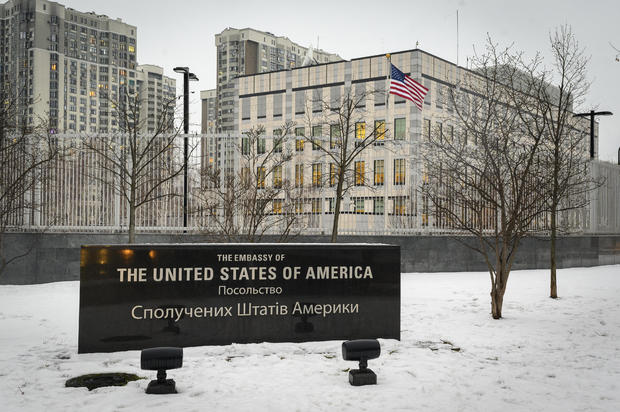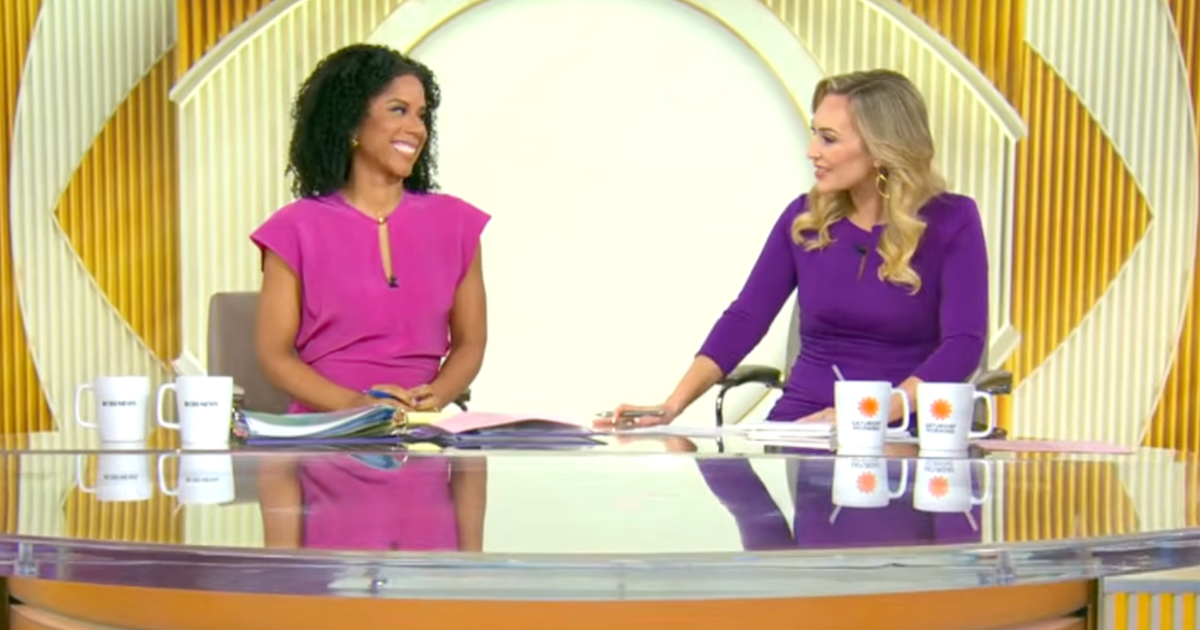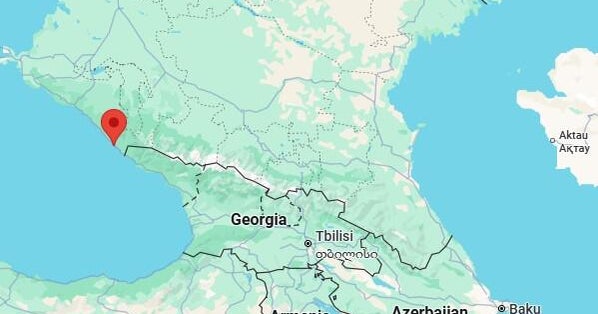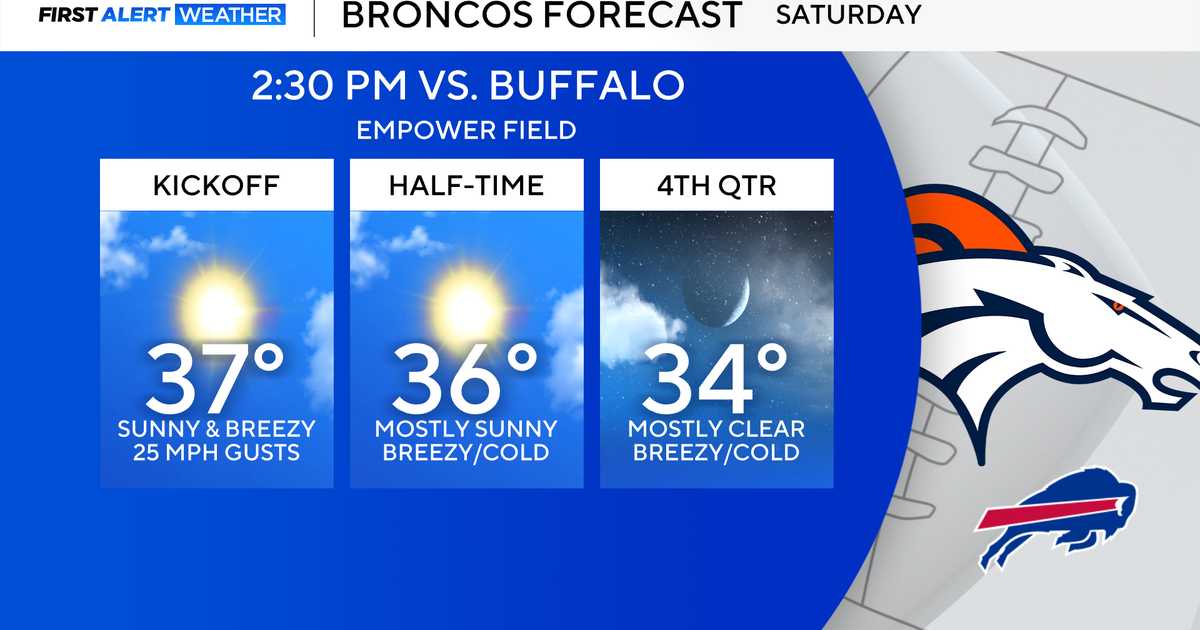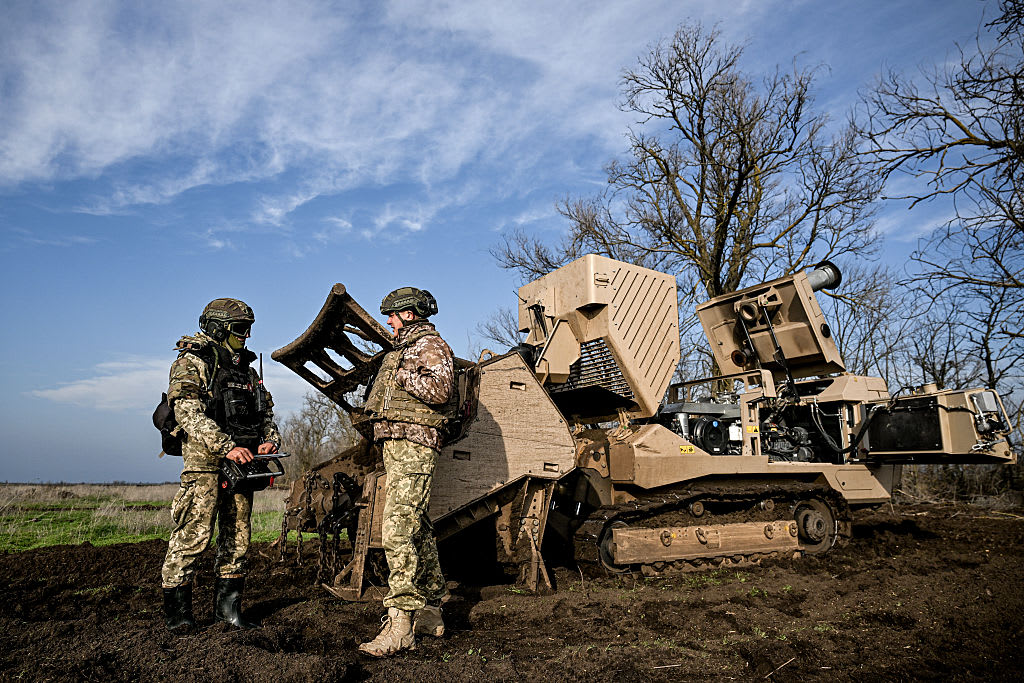U.S. orders employees to leave embassy in Kyiv ahead of potential Russian invasion of Ukraine
The U.S. State Department has ordered non-emergency employees to leave the U.S. embassy in Kyiv, Ukraine, ahead of a possible Russian invasion.
"Today, the [State Department] ordered non-emergency U.S. employees at the Embassy to depart due to continued reports of a Russian military build-up on the border with Ukraine, indicating potential for significant military action," the embassy tweeted early Saturday morning.
Diplomatic sources told CBS News that embassy evacuations started overnight. But not all of the staff will be leaving the country, Christina Ruffini reports for "CBS Saturday Morning." Some will be going to Lviv — a city closer to the Polish border — to provide limited services for Americans who might need them.
As of Sunday, consular services at the Kyiv embassy will be suspended.
"U.S. citizens should not travel to Ukraine, and those in Ukraine should depart immediately using commercial or other privately available transportation options," said a travel advisory for Ukraine issued on Saturday.
The White House is telling all Americans they have less than 24-48 hours to get out.
"If you stay, you are assuming risk, with no guarantee that there will be any other opportunity to leave and there ... no prospect of a U.S. military evacuation," said national security adviser Jake Sullivan.
Sullivan repeated warnings Friday that the State Department has issued for weeks. But the message for Americans to leave Ukraine came with a new sense of urgency.
"We obviously cannot predict the future," he said. "We don't know exactly what is going to happen. But the risk is now high enough and the threat is now immediate enough that this is what prudence demands."
The Pentagon press secretary also said Saturday that 160 members of the Florida National Guard who have been in Ukraine since November — advising and mentoring Ukrainian forces — will be moved "elsewhere in Europe," "out of an abundance of caution."
U.S. officials say Russia now has 80% of the forces it will need to launch a full-scale invasion, and the rest are en route. More than 100,000 Russian troops are amassed along Ukraine's borders — to the east, in Russia, and the north, in Belarus.
"We're in a window when an invasion could begin at any time. And to be clear, that includes during the Olympics," said Secretary of State Antony Blinken.
The U.S. is deploying additional forces to bolster the American military presence in Eastern Europe. The Pentagon announced on Friday it is sending 3,000 more troops into Poland. They will join the 3,000 others already there and in Romania, to reinforce allies should Putin decide to make a move.
The White House says the American military is not going into Ukraine to fight Russia, or even to help evacuations.
"That's a world war, when Americans and Russians start shooting at one another," President Biden said in an interview with NBC.
He said Russian President Vladimir Putin knows not to put American lives at risk.
"I'm hoping that if in fact he's foolish enough to go in, he's smart enough not to in fact do anything that would negatively impact on American citizens," he said.
Sources told CBS News about 7,000 Americans have registered with the U.S. Embassy in Kyiv, but there could be as many as 30,000 in Ukraine. However, many of them have family members, business interests or homes in Ukraine they might not want to leave.
In a phone call Saturday, Secretary of State Blinken spoke with Russian Foreign Minister Sergey Lavrov "to discuss acute and shared concerns that Russia may be considering launching further military aggression against Ukraine in the coming days," State Department spokesperson Ned Price said in a statement.
Blinken told Lavrov that pursuing a diplomatic path to resolve the crisis would require Russia "to deescalate and engage in good-faith discussions."
According to Price, Blinken also reminded his Russian counterpart that invading Ukraine "would result in a resolute, massive, and united Transatlantic response."
Mr. Biden and Putin spoke on the phone Saturday morning. No details about their discussion were immediately available.
